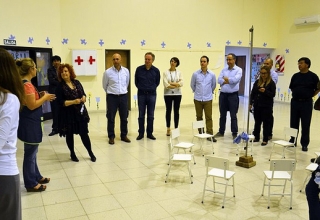Socio proffessional integration of incarcerated persons
The integration of incarcerated persons, particularly through employment, is a fundamental policy in the area of corrections. In effect, the time spent serving the sentence must be useful time for preparing incarcerated people for release to achieve their proper reintegration into the community.
Training for incarcerated persons so that they can find work more easily upon release, or training them vocationally through work during incarceration, is an essential guarantee so that, upon release, they are prepared for reintegration into society. Moreover, the success of these reintegration processes is an essential condition for avoiding recidivism. Thus, the development of effective policies in the area of reintegration goes even farther and has a direct impact on limiting criminal phenomena.
In this sense, the general objective of this line of action is to provide greater coverage and effectiveness to the inclusion of incarcerated persons and a proper reintegration into society, favouring the exchange of experiences and initiatives that have yielded positive results in Europe and Latin America. Special attention is devoted to vocational training, work during incarceration and access to employment after release.
The action is being implemented in an intersectoral way, jointly with the thematic areas of Employment Policies and Education, although it is being led by Justice. The action has a specific gender component, as women constitute the group with the highest reintegration levels and the lowest recidivism rates, and there is a stronger causal link between crime and women's lack of employment opportunities.
Go to the sheet for the line of action
Highlighted experience:
Operational Partners
 |  |  |
Countries
Activities performed
Click on a country to review the activities in that country

